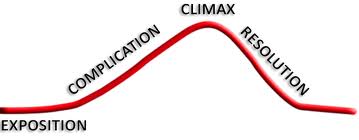 I learned a new word this week during my meetings in Cambridge. The noun form of the word is “narratology” with the adjective “narratological”. Daniel Kirk used this word and it’s the first time I heard it. At first, I assumed he coined it because he’s such a creative thinker and knows how to turn a phrase. Well, he is very sharp tool – I knew that going in, but I am more firmly convinced now, but alas narratology is a recognized modern literary theory . . . I’m sure Daniel knew this but didn’t let on! Here’s a description I found online from a course at Purdue:
I learned a new word this week during my meetings in Cambridge. The noun form of the word is “narratology” with the adjective “narratological”. Daniel Kirk used this word and it’s the first time I heard it. At first, I assumed he coined it because he’s such a creative thinker and knows how to turn a phrase. Well, he is very sharp tool – I knew that going in, but I am more firmly convinced now, but alas narratology is a recognized modern literary theory . . . I’m sure Daniel knew this but didn’t let on! Here’s a description I found online from a course at Purdue:
NARRATOLOGY EXAMINES THE WAYS that narrative structures our perception of both cultural artifacts and the world around us. The study of narrative is particularly important since our ordering of time and space in narrative forms constitutes one of the primary ways we construct meaning in general. As Hayden White puts it, “far from being one code among many that a culture may utilize for endowing experience with meaning, narrative is a meta-code, a human universal on the basis of which transcultural messages about the nature of a shared reality can be transmitted” (Content 1).
While I’m not well informed on the application of this theory in the field of literature more broadly, it does provide a way to talk about the importance of the story of Israel in shaping a readers “perception of the cultural artifacts and world” within the New Testament. The ordering or sequencing of the narrative contained within the Jewish scriptures, which was most likely quite similar to the scriptures of Jesus and Paul and John, is an essential component for interpretation. We don’t read the scripture’s story from front to back – from Genesis to Chronicles (or Malachi), at least not theologically. Theologically we should allow the later parts of the story to interpret the earlier parts. To say it another way, the later parts indelibly shape the earlier parts.
Let me give you a few suggestions on how narratology might work. One example might be to see the story of creation in light of Israel’s story. I read Gen 1-2 through the story of Israel. In this way, the story is not only or even primarily about the story of humanity (although it can be used for this- see Paul in Acts 17) but a story of God’s creation of Israel. Related to this then would be to understand also that the story of Adam is being carried on through the subsequent stories of Abraham – Moses – David – and, ultimately, Jesus. For Paul to speak of Adam (e.g. Rom 5), in my view, is to speak of the David-Israel-Adam. Jesus as the eschatological Messiah is the Davidic Messiah-Israel-Adam one.















